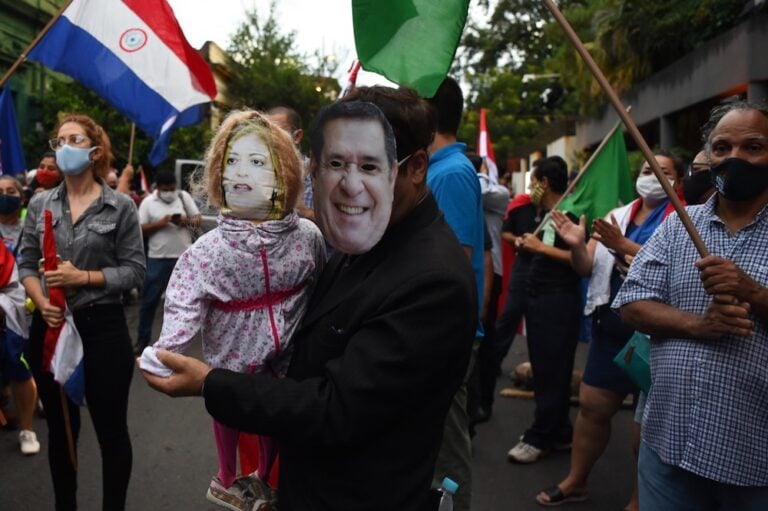Only two percent of the radio spectrum in Paraguay belongs to community media, while 98% is controlled by commercial interests that determine the political agenda.
(IFJ/IFEX) – 13 August 2010 – The International Federation of Journalists (IFJ) joined today its affiliates in South America to help the Union of Journalists of Paraguay (SPP) launch its manifesto on the democratisation of media at the Fourth Americas Social Forum in Asuncion, Paraguay.
“We stand by our colleagues in Paraguay in their efforts for the democratisation of communications. Our message is clear: Democracy demands media at the service of society,” said IFJ Vice-President Gustavo Granero.
The manifesto will be launched at a panel entitled “Democratisation of Communications in Latin America” with the participation of SPP General Secretary, Pedro Benitez, IFJ Vice-President Gustavo Granero and Celso Schroder, President of the Federation of Latin American and Caribbean Journalists (FEPALC), as well as experts on communications and representatives of trade unions supporting the manifesto ‒ a group made up of nine national organizations that have come together to promote a national debate around the promotion of a Law on Communications and Rules for the National Telecommunications Commission (CONATEL).
In recent decades, the media landscape in Paraguay has been dominated by a strong concentration of media in few hands. Only 2% of the radio spectrum belongs to communitarian media while 98% is under the control of commercial interests that determine the country’s political agenda. Community radios have attempted to earn a significant presence on the national agenda, but are often silenced, intimidated and stigmatised.
The SPP is calling for a national movement to save the essence of information of public interest, a vital principle in a democratic society, demand the state guarantee access to media for those most vulnerable, and demonstrate a real interest and commitment in the defense of pluralism, preservation of Paraguay’s traditions and languages, and protection of society’s right to know, through the promotion of a Law of Communications. This law would promote fair and transparent distribution and access to the radio spectrum.
The work of trade unions in Brazil and Argentina has opened doors in the region for efforts aimed at the democratisation of communications and defence of journalism. In Brazil, the National Federation of Journalists (FENAJ) led a process of construction of the First National Conference of Communications (CONFECOM), supported by the government, with participation of State institutions, trade unions, NGOs and media owners.
In Argentina, the Audiovisual Media Services law was approved by Congress last year. It transformed Argentina into one of the best references of regulatory frameworks to curtail media concentration and promote and guarantee diversity and pluralism. It gave recognition to three sectors ‒ broadcasting, state commercial and non-profit ‒ and guaranteed a 33 per cent participation by non profit private entities, including community radios, in the radio frequency spectrum. The Argentinean Federation of Press Workers (FATPREN) campaigned and lobbied for approval of the law.
“In Latin America the policy on communications affects the situation of media concentration, cultural and ideological values. The story of our continent has demonstrated legislation frameworks that have undermined freedom of expression, press freedom and pluralism. Paraguay is not the exception. However, trade unions of journalists have set forth national and regional movements to fight against the harmful media concentration, delivering positive results in countries such as Brazil and Argentina,” added Granero.
The Fourth Americas Social Forum kicked off last Wednesday in Asuncion with a colourful march through the streets, as some 12,000 people prepared to take part in the activities organised by 50 local groups and 550 organisations from Argentina to Canada. The event included 380 workshops, lectures, panels, conferences and cultural activities organised by the participating local and international groups and movements, as well as a rally in solidarity with Paraguay’s current process of political change.


